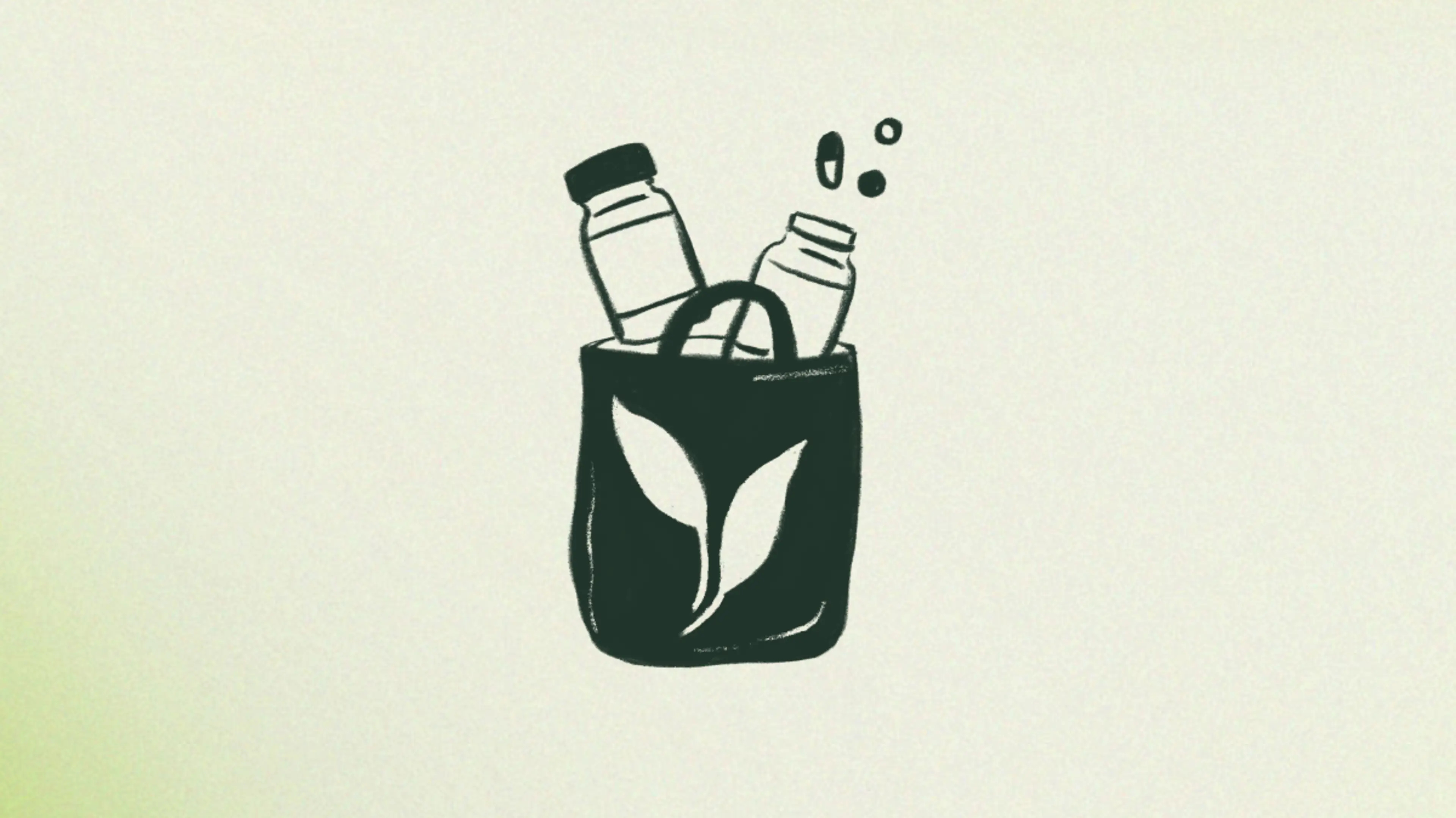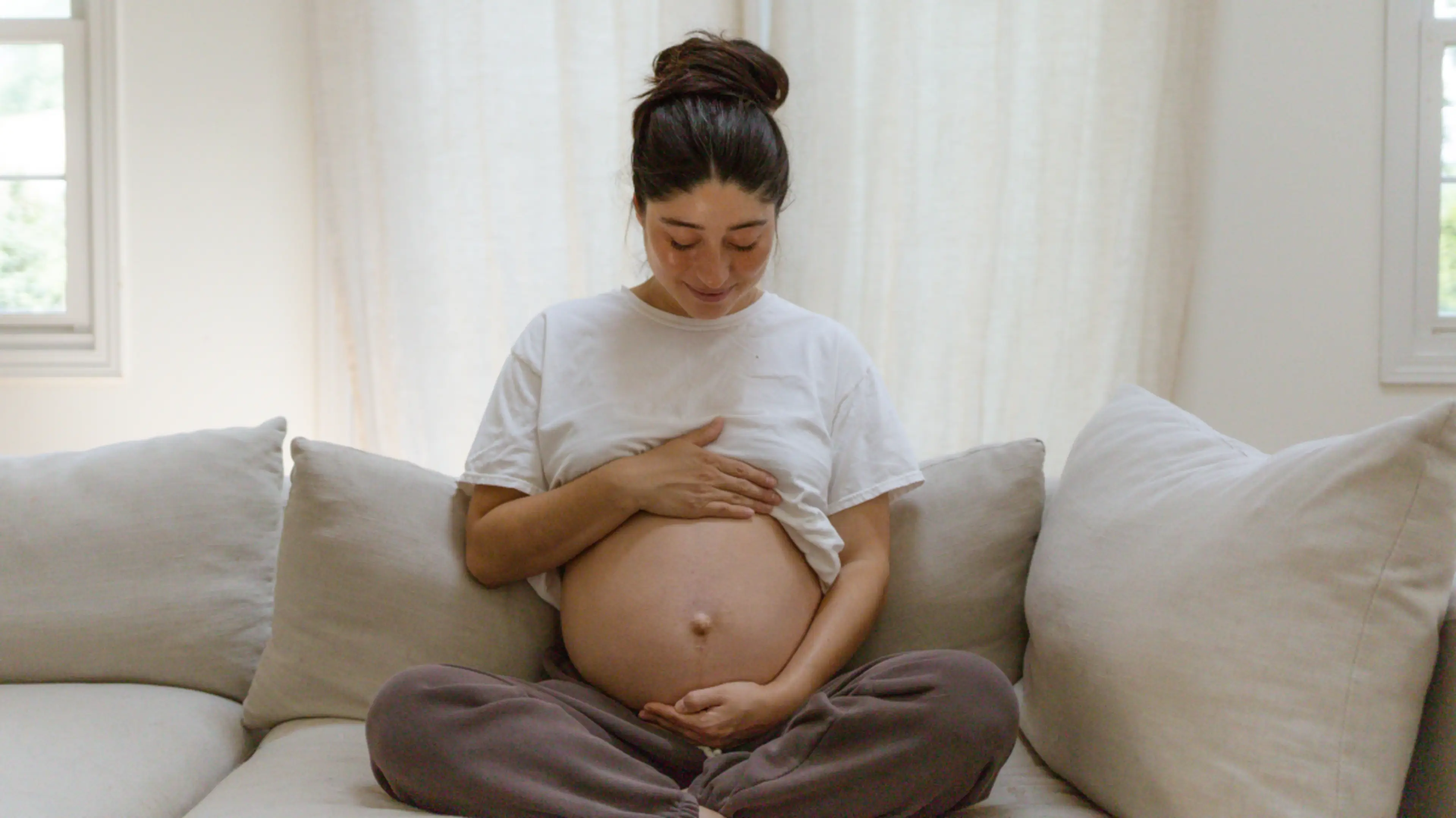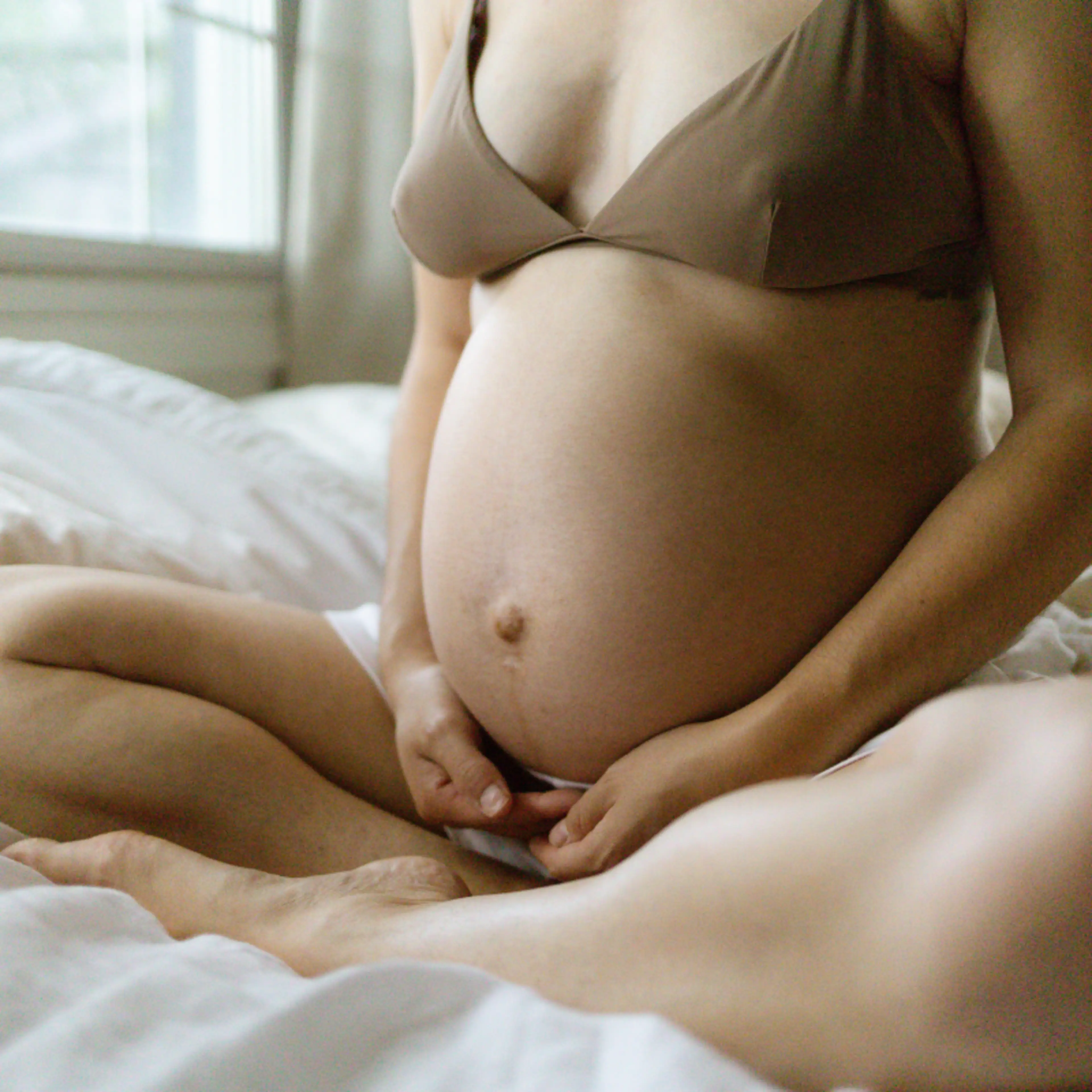Many people would like to think that pregnancy is mostly sunshine and rainbows for the whole nine months, but the reality is that pregnancy can look a lot different for some people. While some ups and downs are normal during pregnancy, it’s not normal to feel sad for an extended period of time.
Feelings of sadness, low self-esteem, anger, and/or emotional numbness that don’t get better within a few days could be signs of depression during pregnancy, and it’s important to seek support and treatment as soon as possible to protect the health of you and your baby. From symptoms and causes to diagnosis and treatment, here’s everything to know about pregnancy depression and how to get help.
If you or a loved one are experiencing a psychiatric emergency, immediately call or text 9-8-8 to reach the national mental health crisis hotline, or visit your nearest emergency room.
What Is Perinatal Depression?
Perinatal depression is debilitating sadness or low mood that affects someone during pregnancy (known as pregnancy depression), within the first 12 months of having a baby (known as postpartum depression), or both. You may have heard of postpartum depression already, as it’s reported more frequently—in up to one in seven1 postpartum people—than pregnancy depression.
Both postpartum depression and pregnancy depression are just two of the Perinatal Mood and Anxiety Disorders2 (PMADs) that can affect pregnant and postpartum people. Other PMADs include postpartum anxiety, postpartum PTSD, postpartum OCD, and postpartum psychosis, among others.
Mood swings vs. depression
As we said before, it’s totally normal to experience some ups and downs during pregnancy. Mood swings3 are a common symptom of pregnancy, especially in the first trimester, and are typically caused by the hormone changes and physical stresses that come with growing a baby.
But if your mood swings go beyond the second trimester (known for being one of the easier parts of pregnancy), last longer than two weeks, and are interfering with your daily life, they may be more than just your typical pregnancy mood swings. If you’re noticing that you can’t seem to shake your sadness or bad mood and it’s preventing you from going about your day, then it’s time to talk to your doctor about pregnancy depression.
How common is depression during pregnancy?
According to the American College of Obstetricians and Gynecologists, around 10%4 of pregnant people experience depression during pregnancy. However, a study by the CDC5 suggests that the actual number could be higher due to a lack of symptom screening during prenatal doctor appointments in some areas.
“We believe the number of [people] experiencing depression during pregnancy is likely higher than 10%,” Stephanie Brasser6 , registered nurse, writes in the Madison Women’s Health blog7 . “It is not uncommon to have negative thoughts, emotions, and fears. It’s completely okay to bring these up with your doctor. In fact, we encourage you to share your concerns so that you can get the help you need.”
Pregnancy Depression Symptoms
Just like non-pregnancy depression and symptoms of postpartum depression, pregnancy depression is defined by long-lasting low mood, low self-image, and physical effects due to poor self-care. The key difference is that the symptoms of pregnancy depression often largely center around being pregnant and having a baby.
Talk with your healthcare provider if you experience any of these symptoms for two weeks or longer:
Emotional symptoms:
Persistent sadness or general low mood that only lifts superficially for brief periods of time (i.e. laughing at a joke, then immediately feeling low again) or doesn’t lift at all
Excessive crying
Anxiety, especially around your baby’s health
Feeling guilty, worthless, or inadequate, especially around your capabilities as a parent
Loss of interest in things you used to enjoy
Feeling emotionally numb
Thoughts of death or suicide
Behavioral symptoms:
Avoiding things you typically enjoy, including activities, foods, and places
Withdrawing from friends and family members
Difficulty concentrating
Difficulty remembering things
Sleeping too little or too much
Eating too little or too much
Poor response to reassurance
Smoking, drinking alcohol, or using illicit drugs
Not performing basic daily self-care, including bathing
Physical symptoms:
Gaining too much or too little weight based on healthcare provider recommendations for pregnancy
Losing weight after the first trimester
Excessive fatigue (beyond what is normal for pregnancy)
Poor hygiene
Can having depression while pregnant affect my baby?
If left untreated, depression can lead to excessive weight loss, poor sleep, alcoholism, and drug use (including smoking), all of which may damage fetal development8 and cause miscarriage, fetal growth restriction, premature birth, and low birth weight. Untreated depression during pregnancy can also cause excessive weight gain, which can lead to conditions like preeclampsia and gestational diabetes and affect fetal development.
Studies have also shown9 that not treating depression during pregnancy can cause long-term effects after birth and into childhood, including increased stress levels, decreased ability to cope with stress, and increased risk of having emotional and behavioral problems. One study10 found that children of parents with perinatal depression are two times more likely to develop depression themselves than children whose parents didn’t experience depression symptoms.
Given the potential for both immediate and long-lasting effects that untreated depression could have on your baby, it’s extremely important to tell your healthcare provider about any symptoms you’re experiencing as soon as possible so you can get proper treatment.
What Causes Depression During Pregnancy?
There are lots of factors that may put you at greater risk of developing depression during pregnancy, including:
Sensitivity to hormone changes
Personal or family history of depression or other mood disorders
Difficult pregnancy, including developing pregnancy complications like gestational diabetes
History of miscarriage or child loss
Unexpected pregnancy
Teen pregnancy
Financial, job, or housing instability
Little to no social support system (friends and family)
Intimate partner violence
Does pregnancy cause depression?
Hormonal changes are a major part of pregnancy, and while they’re necessary for preparing your body to have a baby, they can also be the root cause of depression symptoms. Not everyone notices the increase in pregnancy hormones, but some pregnant people may be more sensitive. As estrogen, progesterone, and cortisol levels go up, so can your emotional sensitivity, fatigue, and stress, respectively.
Getting Screened for Depression During Pregnancy
At some point during your prenatal appointments, your doctor may ask you to complete a screening for perinatal depression. The screening is often a short questionnaire that asks you to score your moods and behaviors over a recent period of time, usually between seven days and four weeks. The total score will be interpreted by your doctor to determine whether you have depression. The most commonly used tool for perinatal depression screening is the Edinburgh Postnatal Depression Scale11 (EPDS).
In some cases, instead of having you fill out a questionnaire, your doctor may just have a conversation with you about how you’re feeling. You may be tempted to downplay any symptoms out of embarrassment or doubt, but it’s important to be as open and honest as possible during this conversation. Without discussing the full range of your symptoms, your doctor can’t prescribe appropriate treatment.
If your doctor doesn’t provide you with a screening questionnaire or ask you directly about any depression symptoms, you can self-screen using the EPDS scoring sheet and bring your results directly to your doctor.
It’s also important to note that depression during pregnancy can often go unrecognized, even with the use of screening tools. Some symptoms of depression, especially fatigue, loss of appetite, and mood swings, are extremely common pregnancy symptoms, so keep a close eye on any other depression-like symptoms, and notice if the above pregnancy symptoms last well into the second trimester.
How Is Depression Treated During Pregnancy?
There are several options for treating depression while pregnant, both medicated and non-medicated. But before seeking treatment, especially medication, it’s important to talk with your healthcare provider to make sure there are no adverse effects on your pregnancy.
Are antidepressants safe during pregnancy?
Unfortunately, there’s no straight answer to this. Taking antidepressants during pregnancy isn’t necessarily measured as “safe” vs. “not safe,” but rather “low risk” vs. “high risk.” Medications are ranked by risk level12 demonstrated during high-quality research, with Category A being the lowest risk and Category X being the highest risk.
Talk with your doctor before taking any medication to treat depression while pregnant. Depending on your medical history, any current medications you may be taking, and how far along you are in your pregnancy, your doctor may recommend these antidepressants:
Selective serotonin reuptake inhibitors13 (SSRIs) prevent neurons from reabsorbing serotonin, ensuring that there’s plenty of serotonin around in your brain. Commonly prescribed SSRIs include fluoxetine (Prozac), paroxetine (Paxil), sertraline (Zoloft), fluvoxamine (Luvox), citalopram (Celexa), and escitalopram (Lexapro).
Serotonin-norepinephrine reuptake inhibitors(SNRIs) work exactly like SSRIs, but they target norepinephrine (a form of adrenaline responsible for stress responses) as well as serotonin. Commonly prescribed SNRIs include Duloxetine (Cymbalta) and Venlafaxine (Effexor XR).
Tricyclic antidepressants15 (TCAs) also increase serotonin and norepinephrine by blocking their reabsorption into neurons, but they also target additional neurotransmitters, which can lead to unwanted side effects.
Norepinephrine and dopamine reuptake inhibitors(NDRIs) block the reabsorption of norepinephrine and dopamine, but not serotonin. The most common NDRI prescribed for anxiety is bupropion (Wellbutrin). Keep in mind: there are plenty of other NDRI medications, but they aren’t typically prescribed specifically for anxiety.
If you’re considering taking an antidepressant during your pregnancy, another thing to consider is the severity of your symptoms if they’re left untreated. Given the impact that some depression symptoms can have on fetal development and birth outcomes, “the risks of mental illness are typically more impactful to the health of the baby and pregnancy than the risks of medication,” says Dr. Kristin Lasseter, a reproductive psychiatrist and founder of the Reproductive Psychiatry Clinic in Austin, Texas.
Non-medicated treatments for depression during pregnancy
Either in conjunction with or as an alternative to antidepressant medication, non-medicated options can be effective at treating pregnancy depression. Your doctor may recommend:
Cognitive Behavioral Therapy17 (CBT) for depression, includes recognizing toxic thought and behavior patterns, learning mindfulness techniques, and developing healthy coping strategies
Establishing good sleep hygiene19 , including going to sleep and waking up at the same times every day and sleeping in a cool, dark room
Maintaining a healthy diet and nutrition
Support groups (in-person and/or online)
You may hear a lot about herbal supplements to treat depression, but medical experts strongly advise against20 taking any herbal remedies during pregnancy. While prescription drugs are regulated by the FDA and come with well-researched risk assessments, there is no regulated review process for the ingredients, effectiveness, or risks of dietary supplements, including herbals. This means that the safety of taking herbal supplements during pregnancy is unknown, so the safest option is to avoid them.
If you are experiencing any of the symptoms listed in this article or if you feel you may be at risk for depression during pregnancy, please talk with your doctor and reach out to a mental health professional to seek treatment. And know that you are not alone in this journey.











